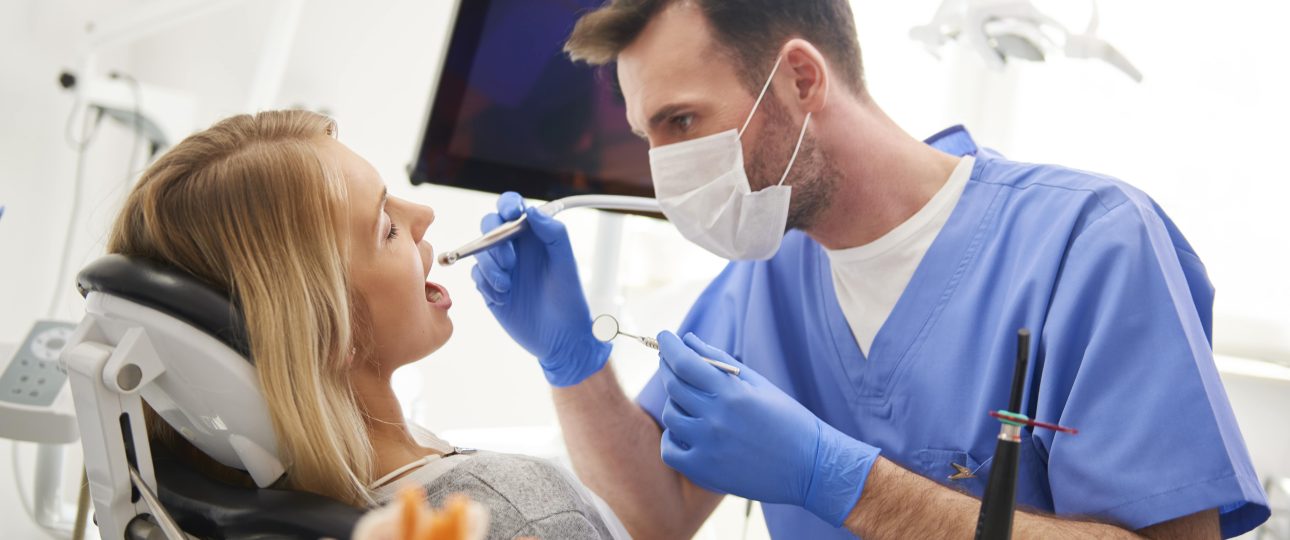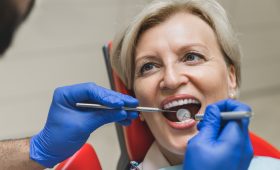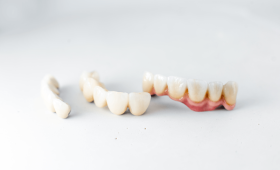What Is the Average Cost of a Single Dental Veneer in Germany?
The cost of a single dental veneer in Germany can vary greatly depending on the type of material used, the location of the clinic, and the experience of the dentist. Generally, the price of a porcelain veneer ranges from €400 to €1,500.
This price includes the design, laboratory production, and placement of the veneer on the tooth. This cost is lower for composite veneers, while it can be higher for full-ceramic or lithium disilicate (E-max) veneers that meet particularly high aesthetic expectations. Pricing can also be offered in packages that cover the entire process, which helps patients better understand the cost.
Why Are Prices in Germany Higher Compared to Turkey?
The main reason dental veneer prices in Germany are higher than in Turkey is the higher general cost of living and business expenses. The operational costs of clinics, such as staff salaries, rent, insurance, and taxes, are quite high. Additionally, the strict regulations and high-quality standards in the healthcare sector in Germany are reflected in the costs. Since Germany offers a high standard of service in both technology and expertise, patients receive a guarantee of reliable and high-quality treatment in return for this higher price.
What is the Price Difference Between Turkey and Germany?
The dental veneer price difference between Germany and Turkey is quite significant. Turkey is known for its competitive prices in the field of dental tourism. On average, the cost of a veneer in Germany can be three to four times higher than the cost of a veneer of the same quality in Turkey. This price difference is due to Turkey’s lower general cost of living. However, it is important to remember that this difference is not only about the cost but also about additional expenses like travel and accommodation.
How is the Total Budget for Veneer Treatment Calculated?
When calculating the total treatment budget, it is necessary to consider the entire process, not just the cost per veneer. First, the number of teeth to be veneered and the material to be used are determined. Then, additional procedures such as tooth preparation, impression taking, and the creation of temporary veneers are included in the price. If there are other problems with the teeth, such as decay or inflammation, their treatment also increases the cost. Finally, expenses such as travel, accommodation, food, and insurance required for the treatment process should also be added to the budget.
Do Prices Vary from City to City?
Dental veneer prices in Germany can show small differences between large cities and rural areas. The costs of clinics located in major metropolitan areas like Berlin, Munich, or Hamburg can generally be slightly higher than those in smaller cities. However, this difference is usually not large enough to cause a significant budget change. The most important factor is the quality of service offered by the clinic and the expertise of the dentist. Therefore, when comparing prices, it would be wise to focus not only on the city but also on the clinic’s reputation and references.
Is There a Price Difference Between State Hospitals and Private Clinics?
Dental veneer treatment in Germany is generally offered by private dental clinics. The state health system usually does not cover such aesthetic and advanced treatments. Therefore, it is quite difficult to find this service in state hospitals, or there may be very long waiting times. Both international and local patients prefer private clinics that offer more modern technology, faster service, and personalized treatment plans. Pricing in private clinics is determined by the quality of service and patient comfort.
How Much Does a Full-Mouth Veneer Application Cost?
Veneering all of your teeth (full-mouth veneer application) is much more costly than individual veneers. The cost of this treatment varies depending on the number of teeth to be treated and the type of material used. Generally, a full-mouth veneer (e.g., 20 teeth) application can lead to costs ranging from €10,000 to €30,000. This price includes the costs of tooth preparation, temporary veneers, and the production and placement of the final porcelain veneers. Since this is a comprehensive aesthetic transformation, the total cost can be quite high.
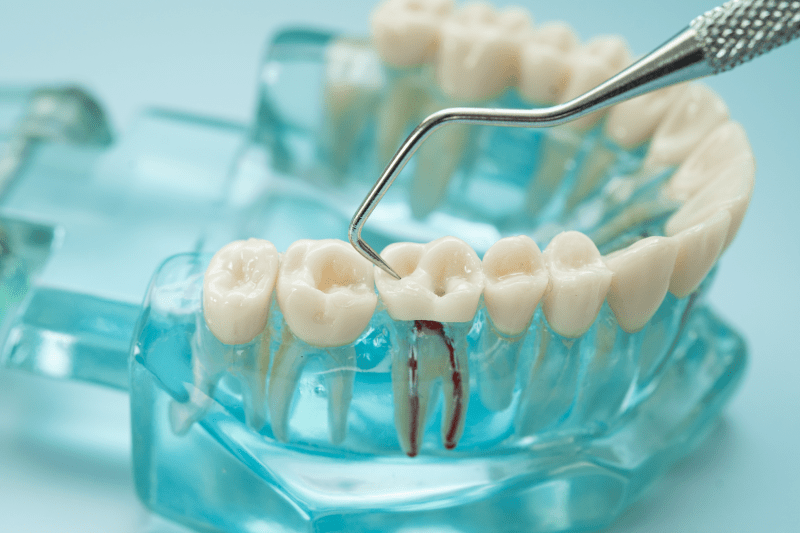
What is the Price Difference Between Composite and Porcelain Veneers?
Composite veneers are a resin-based material that is applied and shaped directly by the dentist and are more economical than porcelain veneers. The cost of a composite veneer generally ranges from €200 to €400. Porcelain veneers, on the other hand, are specially produced in a laboratory and offer a more durable, stain-resistant, and aesthetic solution. The cost of a porcelain veneer can be several times higher than that of a composite veneer due to its quality and durability.
How Do the Veneer Brand and Laboratory Quality Affect the Price?
The brand of material used for the veneers and the quality of the laboratory where the tooth is produced directly affect the total cost. Reputable premium brands like Ivoclar Vivadent’s E-max have higher prices due to their superior aesthetics and durability. These brands offer scientifically proven success rates for longevity and color stability. Similarly, clinics that use the latest digital design and production (CAD/CAM) systems and work with high-quality laboratories may also charge higher fees.
Is the Dentist’s Experience and Expertise Included in the Price?
The dentist’s experience, expertise, and the prestige of the clinic are among the most important factors that directly affect pricing. A dentist who is specialized, has years of experience, and holds international certifications in aesthetic dentistry can naturally charge a higher fee for their services. This is of great importance in veneer treatment, which is an aesthetic procedure, to achieve natural and successful results. When comparing prices, it would be wise to pay attention not only to the cost but also to the dentist’s portfolio and previous successes.
Do the Types of Materials Used Change the Price?
Yes, the type of material used for the veneers significantly affects the price. The most commonly used types of veneers are porcelain and composite. Porcelain veneers are more costly than composite veneers because they are a more durable, stain-resistant material that offers the most aesthetic appearance closest to natural teeth. Among porcelain veneers, brands like lithium disilicate (E-max) can be more expensive than zirconia or traditional porcelain due to their superior light transparency and durability.
How Much Do Additional Treatments Increase the Cost?
Before the veneer application, the teeth must be healthy. If there are problems with the teeth such as decay, gum disease, or fillings, these problems must be resolved first. The cost of additional procedures such as root canal treatment, fillings, or gum treatment is calculated in addition to the veneer. These additional treatments can add hundreds, or even thousands, of Euros to the total price depending on the complexity of the case. Therefore, it is important to have a dental examination before starting the treatment to determine possible additional costs.
Are Digital Planning and Imaging Included in the Price?
Digital smile design and 3D imaging (CT scan) are an indispensable part of modern veneer treatment. These technologies allow the dentist to examine your tooth structure in detail and plan the most suitable aesthetic solution. Additionally, the patient can see the treatment result beforehand. Most reputable clinics in Germany include these services in the initial consultation and price quote stage. This way, patients can see the entire process and cost transparently before the treatment begins.
Is Local Anesthesia Included in the Price?
Veneer application usually involves a light shaving of the teeth, and local anesthesia is used to prevent pain during this procedure. Local anesthesia is generally included in the total cost of the treatment. Thanks to the anesthesia applied by the dentist during the procedure, the patient does not feel any pain or discomfort. If additional anesthesia methods are required for very sensitive patients, this may lead to extra costs, but this is a rare situation.
What is the Cost of Temporary Veneers?
It can take a few days for the permanent porcelain veneers to be prepared in the laboratory. During this time, temporary veneers are used to meet the patient’s aesthetic and functional needs. Temporary veneers are included in the price as part of the treatment plan and are generally made from simpler materials like acrylic or resin. This temporary solution allows the patient to continue their daily life comfortably and without sacrificing an aesthetic appearance.
Is the Porcelain Veneer Cost Calculated Separately?
Yes, many clinics price the cost of veneer treatment separately to ensure transparency. This separation allows the items such as the dentist’s labor and laboratory expenses to be clearly seen. The price quote is usually given per tooth and includes the cost of both tooth preparation and the production and placement of the veneer in the laboratory. This way, patients can better manage their budgets and make more informed decisions during the process.
How Do Travel and Accommodation Expenses Affect the Total Cost?
For international patients considering veneer treatment in Germany, travel and accommodation expenses are a significant cost item. Airfare, hotel accommodation, local transportation, and food and drink expenses can significantly increase your total budget. Since veneer treatment usually requires a process that takes a few days, these expenses should be added to the cost of the treatment. Therefore, when comparing prices, it would be wise to pay attention not only to the clinic’s cost but also to all these additional expenses.
What Do “All-Inclusive” Veneer Packages Include?
Some German clinics, especially for international patients, may offer “all-inclusive” veneer packages. These packages include all treatment stages such as dental examination, tooth preparation, impression taking, temporary veneers, and the production and placement of the final porcelain veneers. Some packages may also offer additional services such as airport transfers and accommodation support. These packages are quite popular among patients as they make costs predictable and simplify travel planning.
What Are the Advantages and Disadvantages of the Packages?
The biggest advantage of all-inclusive packages is that the risk of encountering surprise costs is low and the total cost is known from the beginning. These packages greatly simplify treatment and travel planning, especially for patients coming from different countries. However, a disadvantage of these packages is their limited flexibility. For example, if you prefer a specific brand or material, going outside the package may lead to additional costs. Therefore, it is important to carefully examine the services and materials offered by the package.
Are Airport Transfers and Interpretation Services Included in the Price?
Many clinics in Germany that serve international patients offer airport transfers and interpretation services free of charge to make the treatment process more comfortable. These services are a great convenience, especially for patients who do not speak German, and prevent communication issues during the treatment. To find out if these services are included in the price, it is important to contact the clinics and compare the price quotes based on whether these services are included.
Are Payment Options and Installment Plans Available?
Dental clinics in Germany generally offer various payment options. Most clinics accept payments in cash, by credit card, or via bank transfer. However, they may not offer common installment plans like in Turkey. Some clinics, especially for high-cost treatments, may allow payments to be divided according to the treatment stages. It would be beneficial to clarify the payment terms with the clinic before starting the treatment and to find out if there is a payment plan that suits you.
Is the Pre-Treatment Consultation and Examination Fee-Based?
The pre-treatment consultation and examination are the most critical stages of veneer treatment planning. During this process, the dentist evaluates the patient’s general oral health, takes X-rays and digital scans, and determines the most suitable treatment plan. Many reputable clinics in Germany offer this initial consultation and examination for free for international patients. However, it is important to ask in advance whether these services are subject to a fee. This way, you can get a clear idea about the costs before starting the treatment.
Are Warranty and Insurance Options Offered?
Reputable clinics in Germany offer a warranty on the treatments they perform and the materials they use. These warranties are generally limited to a certain period (e.g., 5-10 years) for the veneer itself and cover defects related to material or workmanship. The warranty usually covers issues related to longevity and aesthetics. In the event of a possible complication, clinics may provide free correction services under the warranty. However, regular check-ups may be required for the warranty to be valid.
What is the Level of Veneer Quality in Germany?
Germany has a worldwide reputation for medical and dental services. Dentists in the country are generally well-trained and experts in using the latest technologies. In German clinics, premium porcelain brands and digital design technologies that are recognized worldwide are commonly used. This indicates that the quality of treatment and success rates are quite high. Therefore, there is no need to worry about the quality of veneers performed in Germany.
Are European Union Standards Applied?
Yes, as Germany is a member of the European Union, its health services are subject to the EU’s strict regulations and standards. This means that dental clinics must maintain high standards regarding hygiene, sterilization, and treatment methods. All medical devices and materials used must have CE (Conformité Européenne) certification. This is a source of assurance for patients and indicates that the treatment is of internationally recognized quality.
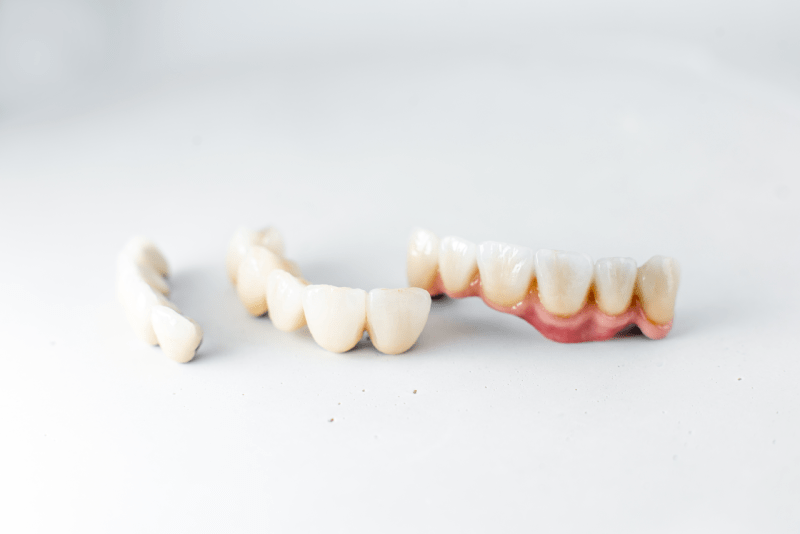
What is the Language Proficiency of the Dentists?
In Germany, the English language proficiency of dentists and clinic staff is quite high. Many clinics, especially in large cities, employ staff who speak multiple languages to serve international patients. Additionally, some clinics may also offer interpretation services to prevent communication issues during the treatment process. It is important to inquire about the clinic’s language proficiency before starting the treatment and to ensure that you can communicate comfortably.
How Can One Find References and Patient Reviews?
When choosing a clinic, it is very important to look at references and patient reviews. You can find such reviews on Google Reviews, independent review platforms, and social media accounts. Reliable and independent review platforms are more useful as they reflect real patient experiences. Additionally, a clinic that offers the opportunity to contact former patients is a good sign of transparency and trustworthiness.
What Can Be Said About Price Transparency?
Reputable dental clinics in Germany place great importance on price transparency. After the initial examination and evaluation, a detailed and written price quote containing all cost items is usually provided to the patient. This quote clearly specifies the costs of the veneers, additional procedures, and all other expenses. This way, patients can clearly see what the total cost will be before the treatment begins, and the likelihood of encountering surprises is reduced.
How Long Does the Treatment Process Take?
Veneer treatment can usually be completed within a few days. In the first appointment, the teeth are prepared and impressions are taken. After the temporary veneers are placed, the laboratory process begins. During this time, the patient can continue their daily life. The permanent veneers from the laboratory are placed on the teeth in the second appointment. The duration of the treatment can vary depending on the number of veneers to be applied and the complexity of the case. Therefore, it is important to consult with your clinic beforehand to plan the total travel time.
Can the Entire Treatment Be Completed in a Single Trip?
Yes, the entire veneer treatment can usually be completed in a single trip. The treatment generally requires 2 to 3 appointments, which can be completed within a few days. This is a great advantage, especially for patients coming from different countries. Patients can usually complete their treatment process and visit Germany by planning a single trip. However, more time may be needed for comprehensive cases where multiple teeth will be treated.
What is the Cost of Post-Veneer Care and Check-ups?
Regular care and check-ups are vital for the longevity of the veneers. The dentist recommends annual check-ups to evaluate the health of the veneers and gums. Most clinics may offer one or two free check-up sessions within the first year after the veneers are placed. However, a separate fee may be charged for check-ups or cleaning procedures after this period. Obtaining information about these costs in advance is beneficial for your long-term budget planning.
Who Covers the Cost of Possible Complications?
As with any medical procedure, there is a risk of complications in veneer treatment. Reputable clinics generally correct complications arising from a material defect or a problem with the workmanship of the veneer for free under warranty. However, the cost of problems caused by the patient’s neglect of oral hygiene or failure to follow the dentist’s advice may be the patient’s responsibility. Therefore, it is important to carefully read the warranty terms and follow the dentist’s instructions.
Is Getting Veneers in Germany Safe?
Yes, getting dental veneers in Germany is extremely safe. As a member of the European Union, Germany adheres to strict health standards and regulations. Clinics are equipped with modern equipment, the materials used have international standards and certifications (CE), and dentists are highly trained and experienced. In addition, meticulous hygiene and sterilization protocols are implemented to ensure patient safety. These factors make getting dental veneers in Germany a reliable option.
Is a Visa Required to Get Veneers in Germany?
Germany is part of the Schengen Area. Therefore, citizens of countries that require a visa for the Schengen Area (e.g., Turkish citizens) must obtain a Schengen visa if they want to go to Germany for dental veneer treatment. The visa process requires documents showing your travel purpose and accommodation arrangements. Since the treatment can usually be completed in a single trip, this simplifies the visa process. It is best to check the most up-to-date information on this from Germany’s official visa websites.
Why Should I Choose Germany?
Germany is a reliable destination that can be chosen for dental veneer treatment. High service quality, experienced and expert dentists, use of international standard materials, and compliance with EU regulations are factors that make Germany attractive. Although the cost is higher compared to countries like Turkey, it is an ideal option for patients who are looking for a safe and transparent treatment process without compromising on quality. Getting veneers in Germany is a good investment for those who want to achieve long-lasting and aesthetic results.
